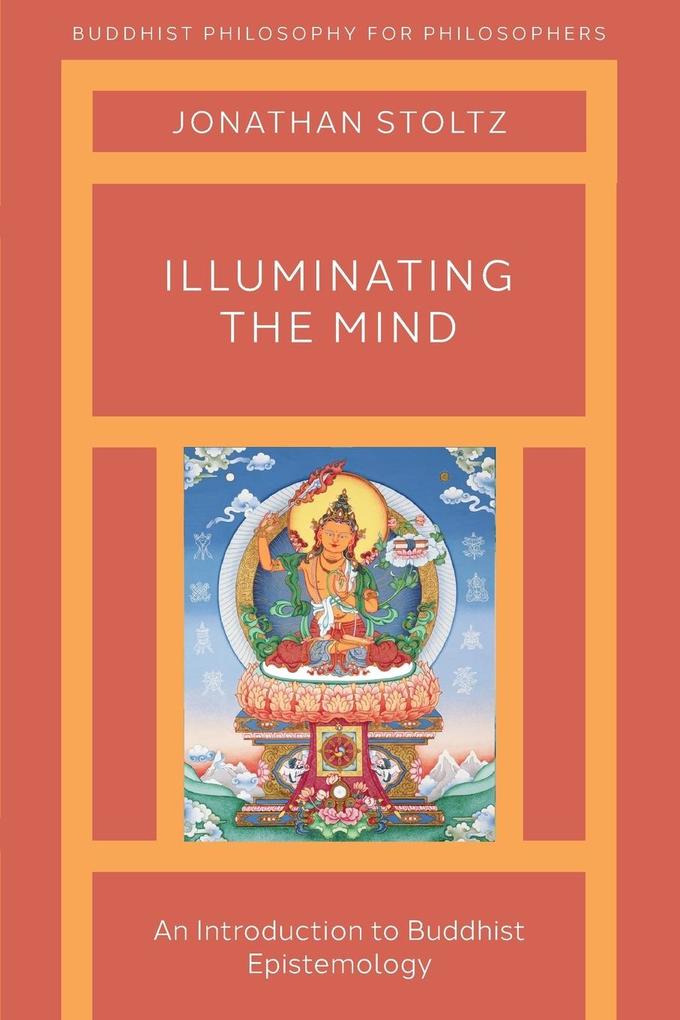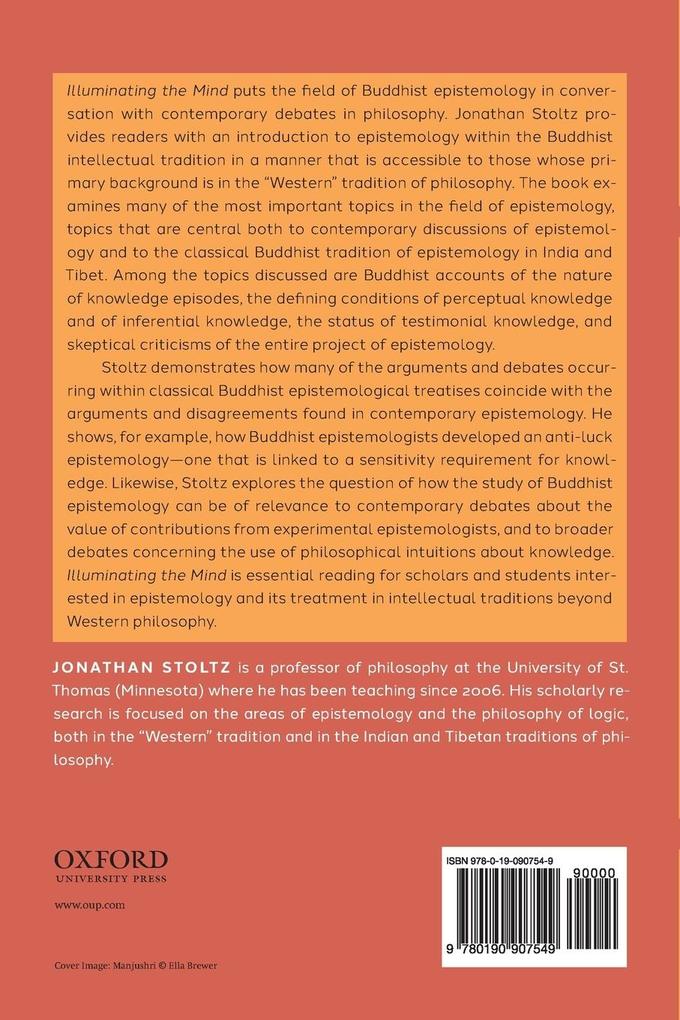NEU: Das eBook.de Hörbuch Abo - jederzeit, überall, für nur 7,95 € monatlich!
Jetzt entdecken
mehr erfahren
Zustellung: Do, 02.10. - Mi, 08.10.
Versand in 2 Wochen
VersandkostenfreiThis work provides an introduction to the Buddhist tradition of epistemology. Designed for readers whose background training is primarily grounded in "Western" philosophy, this book presents a range of core topics from the Buddhist tradition of epistemology and puts those topics in conversation with contemporary trends in epistemology
Inhaltsverzeichnis
- Preface
- Chapter 1: Preliminaries
- 1. Two Histories
- 2. Core Terms and Concepts
- 3. Pramana
- 4. The Episodic Nature of Cognition/Knowledge
- 5. Main Themes of the Book
- Chapter 2: Knowledge
- 1. Defining Knowledge?
- 2. Revealing the Unknown
- 3. Non-deceptive Cognition
- 4. Analytic Theories of Knowledge and 'The Standard Analysis'
- 5. Pramana and Reliabilism
- Chapter 3: Perception
- 1. Perception and Non-conceptual Awareness
- 2. Perceptual Judgment
- 3. Four Types of Perception
- 4. Reflexive Perception and Self-awareness
- 5. Perception, Illusion, and Hallucination
- Chapter 4: Inference
- 1. Two Forms of Inference
- 2. Inference and Conceptual Cognition
- 3. The Structure of Inferential Reasoning
- 4. Evidence and Entailment
- 5. Epistemic Closure
- Chapter 5: Testimony
- 1. The Nyaya Account and the Buddhist Response
- 2. Reductive and Non-reductive Theories of Testimonial Knowledge
- 3. Speakers, Hearers, and Knowledge
- 4. The Transmission Theory of Testimony
- Chapter 6: Ignorance
- 1. Mistaken Cognition
- 2. Ignorant Perception
- 3. Ignorant Veridical Conception
- Chapter 7: Skepticism
- 1. Skepticism and Skeptical Scenarios
- 2. Knowledge and Instruments of Knowledge
- 3. Nagarjuna and the Epistemic Regress Problem
- 4. The Structure of Knowledge
- Chapter 8: Sensitivity and Safety
- 1. Knowledge, Perception, and Inference
- 2. Tracking and Sensitivity
- 3. Safety and Knowledge
- 4. Discrimination and Alternatives
- Chapter 9: Internalism and Externalism
- 1. The Etiology of Cognition
- 2. Analyzing Knowledge and Internalism
- 3. Intrinsic vs. Extrinsic Determination of Knowledge Status
- 4. Factive Mental Episodes and Externalism
- Chapter 10: Experimental and Cross-cultural Epistemology
- 1. Philosophical Intuitions and Experimental Epistemology
- 2. Cross-cultural Intuitions about Knowledge
- 3. The Value of Buddhist Epistemology
- Notes
- Bibliography
- Index
Produktdetails
Erscheinungsdatum
02. April 2021
Sprache
englisch
Seitenanzahl
280
Autor/Autorin
Jonathan Stoltz
Verlag/Hersteller
Produktart
kartoniert
Gewicht
612 g
Größe (L/B/H)
236/157/25 mm
ISBN
9780190907549
Entdecken Sie mehr
Bewertungen
0 Bewertungen
Es wurden noch keine Bewertungen abgegeben. Schreiben Sie die erste Bewertung zu "Illuminating the Mind" und helfen Sie damit anderen bei der Kaufentscheidung.









